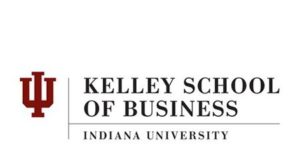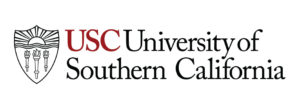
Consultants run America. During the 2016 election cycle, the Democratic National Committee was severely in debt, in part because it had been paying consultants millions for years. This is just one of the many ways that consultants impact every level of society, from government to business, education, healthcare, virtually every sector uses consultants to eliminate inefficiencies, install better practices, and generally improve their organization. Consultants get paid lots of money to do this, and the consulting industry continues to grow rapidly. There were over 806,000 consultants in 2016. Their median annual salary was $81,330. The Bureau of Labor Statistics reported on both, and also predicted a 12% growth in the industry by 2026, which is far faster than average. The programs below will give you an advanced understanding of business practices, the factors that influence efficiency, leadership, organizational evolution and much more. These MBA programs were specifically chosen because they have concentrations in consulting or strategy, which will give you a competitive advantage in the consulting world.
Methodology
- Affordability (1/3):
- Average indebtedness of program graduates in the last calendar year.
- Percentage of graduates who needed to take on student loan debt
- Support Services (1/3):
- Online-specific flexibility, accessibility and support measures for online and non-traditional students
- Quality Classes (1/3):
- The average class sizeThe percentage of faculty with terminal degrees in their field
1) University of Wisconsin
 This public research university is the flagship University for one of the oldest and largest systems in the country. It was founded in 1848 and has grown to 20 schools and colleges, offering tens of thousands of enrollees access to 136 undergraduate majors, 148 master’s degree programs and 120 doctoral programs. Less than 300 people are enrolled in its prestigious, highly ranked MBA consortium program. U.S. News & World Report put it at 12 in their Best Online MBA Programs. 99% of enrollees have a job when they begin the program, which is accredited by the Association to Advance Collegiate Schools of Business, considered the most reliable business school accreditation. Admissions are rolling, and there’s an 80% acceptance rate (due in part to mostly highly qualified applicants). The MBA Consortium has been noted for its faculty credentials and student engagement.
This public research university is the flagship University for one of the oldest and largest systems in the country. It was founded in 1848 and has grown to 20 schools and colleges, offering tens of thousands of enrollees access to 136 undergraduate majors, 148 master’s degree programs and 120 doctoral programs. Less than 300 people are enrolled in its prestigious, highly ranked MBA consortium program. U.S. News & World Report put it at 12 in their Best Online MBA Programs. 99% of enrollees have a job when they begin the program, which is accredited by the Association to Advance Collegiate Schools of Business, considered the most reliable business school accreditation. Admissions are rolling, and there’s an 80% acceptance rate (due in part to mostly highly qualified applicants). The MBA Consortium has been noted for its faculty credentials and student engagement.
Wisconsin’s online MBA program was created with entrepreneurs, business people, engineers, health care providers, and anyone looking to advance a career in business in mind. All of its curriculum also pertains to consulting. It’s known for its unique construction and offers four core modules scheduled around the business cycle. Each module is taught by multiple instructors with a variety of backgrounds. Students can also choose to take individual classes in the MBA program, to build towards degrees elsewhere, or just for general experience. Students take a leadership course and choose 13 elective credits focusing on topics relevant to their experience and career goals. Outcomes of the program include increased awareness of customer, employee, and stockholder needs; communication and evaluation skills; and much more. Graduates will be taught to improve their organizations’ competitive advantages through innovation and technological savvy, and grow as managers and team members, no matter their chosen field. Sample courses relating directly to consulting include Organizational Leadership and Change, Project Management, and Employee Training and Development.
- Homepage
- Average Indebtedness After Program: 2nd ($31,715)
2) New England College

NEC is a private, non-profit college based out of Henniker, New Hampshire. Currently, over 2,700 students attend the school and enjoy a 16:1 student-to-faculty ratio. New England offers 37 bachelor’s degree programs, 12 master’s degree programs, and one doctoral degree program through schools of Arts & Sciences, Education, Management, and Natural & Social Sciences. USNR ranked New England #146-#187 in its “Regional Universities – North, Tier 2” in 2018. The school puts an emphasis on experiential learning. Its business degree programs have earned “Candidate for Accreditation” Status by the Accreditation Council for Business Schools and Programs (ACBSP).
NEC offers an MBA in Strategic Leadership online. It consists of seven 4-credit core courses and three 4-credit curriculum courses. The program can be finished in 20 months. Core courses include Managerial Accounting, Finance for Leaders, Strategic Marketing, and more, all building towards a Capstone project. The Strategic Leadership curriculum is made up of 12 credits, and the following courses: Organizational Communication, Negotiation, and Conflict Resolution, Relationship Selling Strategies, and Project Management. Students will learn to add value to their organization. The program covers topics like long and short-term business decisions, supply chain management, contract management, and quality analysis.
- Homepage
- Average Indebtedness After Program: 1st ($24,261)
3) University of Michigan-Dearborn

The University of Michigan-Dearborn is a public university based in Dearborn, Michigan. It is one of the two regional campuses operated by the University of Michigan. UM-D was founded in 1959. It offers over 90 academic majors, 28 masters degree programs, and 3 doctoral degree programs in a broad variety of disciplines. Currently, over 9,100 students attend UM-D, which has a 17:1 student-to-faculty ratio. Its business school has been cited as a standout in the region, and repeatedly praised by the Princeton Review. Of its MBA program, the Princeton Review described it as, “serving busy professionals looking for a leg up in their careers. Students don’t have to live in, or even near, Dearborn to benefit from the program, however, because the school also offers an online degree featuring the same courses taught on the Dearborn campus with no on-campus residency making it beneficial to out-of-state students and allowing local students more flexibility between school, work, and social life.”
UM-D offers an online MBA with courses in Applied Integrated Management. It can be completed in 36-48 credit hours. It’s open to students who have earned any undergraduate major, and all levels of work experience. Students may attend on a full or part-time basis, and can be started in September, January or May, although it’s recommended to go for fall and winter semesters for course availability. Students will begin with a Business core, and progress to the AIM portion of the major, which is extremely pertinent to consultant work. Courses include Managing Strategic Innovation and Change, Managerial Decision Making, and Corporate Actions and Reactions. This program culminates in a Strategic Planning and Decision Making Capstone project.
- Homepage
- Average Indebtedness After Program: 4th ($45,551)
4) Liberty University

Liberty is a private, non-profit Christian doctoral research university based out of Lynchburg, Virginia. The school was founded in 1971 by Jerry Falwell. It now serves over 75,000 students worldwide. Liberty offers 290 bachelors, 315 masters, and 32 doctoral degrees through 17 distinct colleges. Over 85% of Liberty students take classes online. It has been classified as a doctoral research university by the Carnegie Classification. According to LU, it’s the nation’s largest nonprofit online university and has pioneered distance learning since 1985. There are over 300 different degrees and certifications offered through Liberty’s online wing. Liberty’s online programs were ranked 5th on BestColleges.com’s “Top 50 Online Colleges of 2018.” It has consistently been ranked highly for its Online Bachelor’s Programs, MBA program and other graduate business programs, graduate Criminal Justice programs, graduate Education programs and graduate Nursing programs.
Liberty offers an MBA in Strategic Management, which can be completed entirely online and requires 45 credit hours. The program aims to prepare students to analyze operations, address competition, evade volatile markets and evolve operations in the current business climate. The program offers 8-week courses, and eight different start dates each year (no set login times). Up to 50% of the credit hours can be transferred in from other programs. This business program is taught from a Christian worldview, unlike most. Sample courses include Ethical Leadership, Executive Leadership & Management, Organizational Design and Structure, and Strategic Management Marketing. Students will be prepared to work as mediators, consultants, recruitment specialists, training managers, and many other positions. Online Liberty students get the chance to network with leaders and experts in the Business and Management across the country.
- Homepage
- Average Indebtedness After Program: 3rd ($39,027)
5) University of North Carolina
 UNC is a multi-campus public university that was founded in 1789. It is comprised of 17 public universities, and headed by its original campus in Chapel Hill. Almost 225,000 students are enrolled in the system. Its Kenan-Flagler Business School was founded in 1919. It offers a Bachelor of Science in Business Administration, Master of Business Administration (MBA), MBA for Executives, Master of Accounting, Ph.D., a business certificate program, as well as many executive education programs. In 2015, USNR ranked its online MBA program #1 in the nation.
UNC is a multi-campus public university that was founded in 1789. It is comprised of 17 public universities, and headed by its original campus in Chapel Hill. Almost 225,000 students are enrolled in the system. Its Kenan-Flagler Business School was founded in 1919. It offers a Bachelor of Science in Business Administration, Master of Business Administration (MBA), MBA for Executives, Master of Accounting, Ph.D., a business certificate program, as well as many executive education programs. In 2015, USNR ranked its online MBA program #1 in the nation.
Kenan-Flagler offers an online MBA Specializing in Management Consulting. It aims to give students foundational business, management and consulting skills in an experiential environment. Graduates will have advanced problem-solving skills that are instantly applicable to a number of organizations, and be prepared to work as consultants for them. Through carefully prepared courses and real-world client engagements, the Management Consulting concentration builds analytical and strategic thinking, team leadership and client management skills. Suggested electives include Project Management, Consulting, Corporate Strategy, Managing Innovation, Modeling, and more.
- Homepage
- Average Indebtedness After Program: 9th ($72,225)
6) Indiana University

Kelley is Indiana University’s Business school, based out of Bloomington, Indiana. The school’s student body is broken down into approximately 1,750 at its Indianapolis campus, 5,500 students at its Bloomington Campus, and around 1,300 online students through Kelley Direct. It began in 1920 when it was founded as the “School of Commerce and Finance.” In 2007, the Wall Street Journal ranked it fifth among regional MBA programs, and in 2014, its MBA program as ranked 16th by “Business Week.” Poets & Quants has noted that Kelley’s MBA program is 5th in the nation in producing Fortune 500 CEOs. Kelley is accredited by the AACSB. It offers MBA’s to students in 31 countries, five continents and all 50 states. This advanced network allows graduates to leave with a degree and a potential network of global contacts, all from the comfort of home. Kelley ranked highly in USNR’s latest rankings in admissions selectivity, student engagement and faculty training and credentials.
Kelley’s MBA program focuses on economics, business law/ethics, finance, operations, marketing, information technology and project management. Students can choose to earn an MBA and a dual MS with a concentration in Strategic Management, along with five other MS concentration choices. The Strategic Management concentration covers organizational development and change, operations management, entrepreneurship, competitive analysis and more. Students can complete the program in between 15 months and 5 years at their own pace. Kelley offers a program called AGILE—Accelerating Global Immersion Leadership Education each quarter as an elective. Current opportunities within AGILE take students to emerging economies in Gaborone, Botswana, Sao Paolo, Brazil, Beijing, China, New Delhi, India, Myanmar and Johannesburg, South Africa to apply theoretical knowledge and gain practical experience.
- Homepage
- Average Indebtedness After Program: 7th ($56,046)
7) Pepperdine University

Pepperdine is a private, non-profit research university based in Malibu, California. The school has over 7,800 students, and a 13:1 student-to-faculty ratio. It’s affiliated with the Churches of Christ and was established in 1937. Pepperdine is ranked 46th among “National Universities”, 35th among Best Value Schools, and 65th among Business Schools in U.S. News & World Report’s 2018 rankings. It was also ranked 130th in America’s Best Colleges by Forbes in 2016. Pepperdine is comprised of its main campus, six graduate campuses in southern California, and at international campuses in Germany, England, Italy, China, Switzerland and Argentina, in addition to its comprehensive online wing. In 2018, USNR ranked Pepperdine’s business school 65th out of 437 business programs in the country.
Pepperdine’s Online MBA comes in four concentrations: General Management, Marketing, Leadership and Managing Organizational Change, and Finance. Each requires 12 credits. The MBA program at Pepperdine can be taken in many different delivery formats, depending on whether students want to attend part-time, full-time, in accelerated courses, and based on their work experience. While all the concentrations contain the business foundation and complex concepts that could spur a consulting career, the Leadership and Managing Organizational Change concentration most closely aligns with consulting career goals. Sample courses include Leadership Theory and Practice, Advanced Principles of Organizations and Leadership, Organizational Dynamics and Managing Change, and Managing Creativity and Innovation. Forbes magazine has ranked its MBA programs in the world’s Top 20 based on return on investment.
- Homepage
- Average Indebtedness After Program: 5th ($54,000)
8) Regis University
![]()
Regis University is a private Jesuit university founded in 1877 and located in Denver, Colorado. Regis is just one of the 28 member institutions of the Association of Jesuit Colleges and Universities The university is highly regarded by many, including the U.S. News & World Report, which has ranked it 23rd among regional universities in the western United States. In 2013, its placement on that ranking became its 22nd consecutive appearance on it. Currently, Regis serves over 8,300 students while maintaining a student-to-faculty ratio of 14:1. Annual tuition for the 2017-18 academic calendar totaled $34,450, though 67 percent of full-time undergraduates received financial aid, with the average scholarship coming out to $17,582. Regis University is used to accommodating distance learners, as 48% of its undergraduates and 51% of its graduate students are enrolled in online courses. The university offers 42 different online graduate degrees including a masters of Information Assurance, a masters of Business Administration, and a Doctor of Nursing Practice.
Regis offers an online MBA with a specialization in Strategic Management. It helps students understand what it takes to set up an organization for success. You’ll learn to “analyze operations, address competition, survive volatile markets and evolve operations in a fast-paced business environment.” You’ll learn how to do these things within the framework of an organization’s vision, goals and policies. Courses are conveyed over 8 week terms, and there are start dates every 8 weeks. Required courses include Innovation and Entrepreneurship, Managerial Economics, Strategy Formulation, Logistics Management, Market Opportunity Assessment, among many others.
- Homepage
- Average Indebtedness After Program: 6th ($55,187)
9) Carnegie Mellon University
![]()
CMU is a private research university in Pittsburgh, Pennsylvania. It was founded in 1900 by the famous businessman Andrew Carnegie. Currently, over 13,200 students attend the school, which has a very low 10:1 student-to-faculty ratio Carnegie Mellon has been ranked 20th in the United States and 24th in the World by Times Higher Education. It also ranked CMU 6th in Computer Science, 12th in Engineering & Technology and 15th in Business & Economics in the world. Additionally, Carnegie Mellon is ranked 25th in the United States and 77th in the world by USNR. Its business school offers undergraduate programs in Business Administration and Economics (the latter jointly with the Dietrich College), master’s degrees in Business Administration (MBA) and joint degrees in Computational Finance (MSCF) with the Dietrich College of Humanities and Social Sciences, the Mellon College of Science, the Heinz College, and the School of Computer Science.
Carnegie Mellon’s Tepper School of Business offers an online MBA. The program has been ranked as the #1 online MBA by Poets & Quants, and #2 by USNR. The program is part-time and hybrid, coupling online classes with in-person experiences. Students will need to attend online live classes twice a week, while also attending asynchronous courses as well. What sets apart Carnegie’s MBA is its dedication to analytics and leadership skills. In between semesters, there are Access Weekends in which students attend in-person classes to connect with faculty, classmates and alumni. These weekends also let students, “visit top companies to learn about their strategies and hiring practices, interact with speakers related to the industries you are studying, and network with alumni and full-time MBAs when you are on campus.” Carnegie lets students sit in on a live class to get a sense of the program.
- Homepage
- Average Indebtedness After Program: 10th ($90,445)
10) University of Southern California
 USC is California’s oldest research university and was founded in 1880. It’s one of the most popular schools in the country, currently serving over 43,800 students and offering a 9:1 student-to-faculty ratio. 95 undergraduate majors and 147 academic and professional minors are offered. Its graduate programs are classified as “comprehensive” and include 134 master’s, doctoral, and professional degrees through 17 professional schools. USC’s graduates are known for their ridiculous successes in business and have started companies like having founded companies such as Lucasfilm, Myspace, Salesforce.com, Intuit, Qualcomm, Box, Tinder, and Riot Games, among many others. They’ve also been on the cutting edge of digital and Internet technology for decades, and were one of the first nodes on ARPANET, in addition to being the birthplace of the Domain Name System.
USC is California’s oldest research university and was founded in 1880. It’s one of the most popular schools in the country, currently serving over 43,800 students and offering a 9:1 student-to-faculty ratio. 95 undergraduate majors and 147 academic and professional minors are offered. Its graduate programs are classified as “comprehensive” and include 134 master’s, doctoral, and professional degrees through 17 professional schools. USC’s graduates are known for their ridiculous successes in business and have started companies like having founded companies such as Lucasfilm, Myspace, Salesforce.com, Intuit, Qualcomm, Box, Tinder, and Riot Games, among many others. They’ve also been on the cutting edge of digital and Internet technology for decades, and were one of the first nodes on ARPANET, in addition to being the birthplace of the Domain Name System.
USC offers an online MBA. It was constructed specifically to address issues in the digital business world. Students will become intimately acquainted with analytics, virtual communications, and remote team management, among many other topics covered. USC strives to keep its cohort groups in this program small, maximizing student and faculty interaction. The program begins with a one-week intensive residential session, in which students meet faculty and each other and take the first class of the program, The Role of a Manager. Students will then take five semesters, each one containing a course. Courses are as follows: Fundamentals of Business, Managing Outside the Firm, Managing Inside the Firm, Opportunity Recognition and Development, and Business Environment and Leadership. This simplified format contains exactly what students need to begin or continue careers as consultants, but in a concise program featuring wide-reaching, sequential classwork.
- Homepage
- Average Indebtedness After Program: 8th ($66,780)